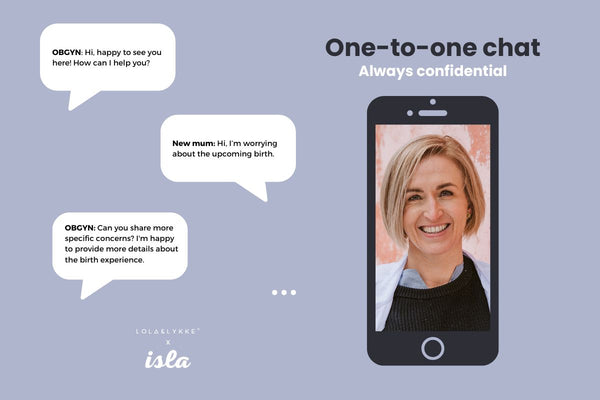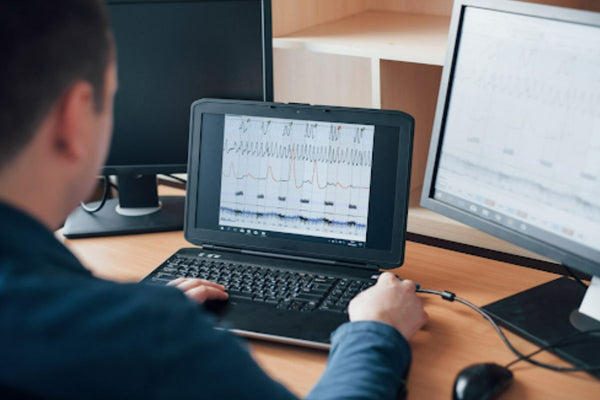Digitisation and technologisation keep changing the world and transforming multiple industries including socially meaningful sectors such as healthcare. Recent tech advancements have disrupted the healthcare landscape. Active software integration has redefined and significantly enhanced various aspects of healthcare delivery including maternal health.
Maternal health embraces both the physical state and emotional soundness of women during pregnancy, childbirth, and the postpartum period. Directly impacting the well-being of both the mum and the newborn, it is a crucial field of public health that requires consistent outlook and improvement.
Permeating this segment at all levels, the software introduction has become a game-changer for maternal health. In this overview, we’ll investigate the impact and contributions of software applications in this realm.
Why Is Software Integration Important for Maternal Health?
A modern medicinal system has seen huge progress in recent years. At the same time, certain issues and challenges still persist, affecting women in various parts of the world. Geographical, economic, and social barriers limit access to timely and appropriate assistance. In many distant regions, women struggle to get to healthcare facilities due to the lack of transportation, and financial constraints.
Yet another bottleneck to tackle is cultural and educational factors that also limit the proper perception of maternal services to a certain extent. Breaking these barriers will ensure that every woman receives the care she needs, no matter her location or socioeconomic status.
While traditional approaches fail to settle these issues, technology-driven solutions come to bridge gaps in healthcare delivery. Telemedicine and mobile health apps can reach women in remote areas. By providing education and support, they make it easier for medical experts to detect and prevent complications.
Hence, the importance of advanced software in maternal healthcare cannot be overstated. Catering to the diverse needs of women, it helps create a more inclusive and effective maternal healthcare system, greatly improving accessibility, monitoring capabilities, and personalized care delivery.
It is very important early on to find a quality product engineering company to help you make the right software. So that it doesn't become a key problem for your business later on.
Software Applications in Maternal Health
Over time, software solutions become more and more sophisticated, offering top-notch capabilities and exceptional user experiences. They transfer to the digital space services and functionalities that were out of virtual reach before. In the context of maternity health, software-based tools contribute to establishing a connected and informed ecosystem bringing maternity care to a new quality level.
Telehealth Services
With the help of telehealth software, expectant and postpartum mums can consult with healthcare professionals remotely. This approach eliminates geographical barriers and enables women in rural or underserved areas to receive medical advice just when they need it. This will reduce the risk of complications.
-
Virtual prenatal consultations eliminate the need for physical visits while ensuring consistent remote access to expert medical advice.
- Remote devices and wearable technology make possible continuous monitoring of high-risk pregnancies for healthcare providers to stay on top of vital signs, fetal movements, and other relevant data. It’s crucial for early detection of potential risks and timely intervention.
-
Virtual counselling sessions and support groups contribute to maternal mental health support, enabling expectant and new mums to tackle mental health challenges and avoid depressive states, especially during the postpartum recovery period.
- Postpartum follow-up appointments, lactation consultations, and mental health check-ins can be conducted virtually, ensuring convenience and support during the critical period after birth.
Lola&Lykke is collaborating with Isla Health from Finland to offer our customers unlimited chat-service for one month. If you have any questions regarding reproductive health, including mode of delivery, birth recovery, menstruation, perimenopausal problems, or anything in between, then OBGYN specialist Aura Pyykönen is the right person for you. The service is provided in English and the special introductory price is 35€ a month.

Prenatal Care Apps and Platforms
Welcoming a new life into the world is an exciting and responsible journey. Expectant mums will feel safer and more confident with a knowledgeable pocket consultant.
Prenatal care apps serve as virtual encyclopedias, providing future mums with a treasure trove of information on each stage of pregnancy. From week-by-week development updates to insights on nutrition, exercise, and common symptoms, these platforms guide women to make informed decisions about their health.
These tools come up with comprehensive and diverse functionality embracing:
- Personalized pregnancy trackers to monitor their baby's growth, track milestones, and receive customized information based on their due date;
- Nutrition and exercise plans to offer tailored meal plans, safe exercise routines, and reminders for essential vitamins and supplements, ensuring that mums-to-be maintain a healthy lifestyle;
- Appointment reminders to manage healthcare visits and make sure that mothers attend all necessary check-ups and screenings;
- Support forums and groups to foster a sense of community and enable women to share experiences, seek advice, and provide emotional support;
- Kick counter and fetal movement trackers to enable mums-to-be to keep an eye on their baby's activity patterns for their peace of mind and to early detect any irregularities;
- Labour and birth preparation resources to guide the labour process through information on breathing exercises, and by explaining what to expect during delivery.
Remote Monitoring Devices and Software
These tools give healthcare providers an opportunity to identify potential issues early on, leading to more effective interventions. This ability is particularly beneficial for high-risk pregnancies. It provides continuous oversight without the need for frequent hospital visits.
- Real-time tracking: Wearable sensors or smart patches can measure parameters like blood pressure, heart rate, and oxygen levels. They provide actual data for healthcare professionals to assess and monitor maternal well-being.
- Fetal monitoring: Advanced fetal monitors can track the baby's heart rate and movements to continuously control fetal well-being.
- Glucose control: These devices help women with gestational diabetes trace and manage blood sugar levels to stay on top of their health condition and avoid critical states that can cause complications.
- Smart home monitoring kits: Including various devices for tracking different health parameters, these kits often integrate with smartphones or tablets allowing for seamless data transfer to healthcare providers.
- Remote data reporting: Using specialized apps, mums-to-be can easily upload their monitored data and share them with healthcare professionals to provide a comprehensive overview for remote analysis.
- Alerts for timely intervention: Remote monitoring software can generate alerts and notifications in case of abnormal readings or potential concerns. This feature ensures that healthcare providers can promptly intervene.

Electronic Health Records (EHR)
The adoption of EHR systems streamlines healthcare processes by digitising patient records. Here is how EHR contributes to the improvement of maternal health:
- Comprehensive health history documentation: EHR systems create a comprehensive digital repository of an expectant mother's health history. Healthcare providers will gain access to a complete overview including previous pregnancies, medical conditions, allergies, and medications.
- Smooth communication between healthcare providers: Obstetricians, midwives, nurses, and specialists can easily access and update patient records to make sure they are on the same page. This allows for achieving better-coordinated care throughout the entire pregnancy journey.
- Integration with telehealth services: EHR systems smoothly integrate with virtual healthcare platforms. This way, providers can access a mum's complete medical history during remote consultations, delivering well-informed virtual care.
- Real-time data updates: In some situations, timely decisions are critical. With EHR, obstetricians can access the latest information and monitoring data to quickly make informed decisions.
- Predictive insights: Using data analytics, EHR systems can provide medical professionals with predictions of maternal health trends. Systems are capable of analyzing huge datasets and identifying patterns and potential risk factors. This info is valuable for proactive interventions and personalized care plans.
- Enhanced postpartum coordination: Via EHR, maternal health records transition into postpartum records. It ensures continuity of care and facilitates efficient follow-ups, addressing any lingering concerns and supporting the new mum's physical and mental well-being.
Educational Platforms
Software applications can serve as educational platforms, offering informative content on various aspects of maternal health. They enable women to gain the required knowledge for making informed decisions about their own health and the health of their newborns. Apart from prenatal education, nutrition guidance, and wellness programs offered by prenatal apps, educational platforms also provide:
- Mental health support including resources on managing stress, anxiety, and mood swings during pregnancy. Additionally, they provide coping strategies and mindfulness techniques to support the emotional well-being of expectant mothers.
-
Breastfeeding resources embracing information on proper latching, establishing a breastfeeding routine, and addressing common challenges.
- Online webinars and virtual classes covering a range of topics such as childbirth preparation, postpartum care, and parenting skills.
-
Peer support through online forums and groups to share experiences, ask questions, and gain emotional support.
Appointment Scheduling
Software solutions simplify the process of scheduling appointments for both healthcare providers and pregnant women. They often integrate with EHRs to ensure that each appointment is tailored to the expectant mother's specific needs and health status.
Such scheduling systems with embedded automatic reminders significantly reduce the likelihood of missed visits ensuring that healthcare providers can monitor the progress of the pregnancy more effectively and timely address any emerging concerns.
Many systems include secure communication channels between healthcare providers and expectant mothers. This feature enables quick exchanges of information, clarification of doubts, and concerns management, fostering a more open and collaborative patient-to-medical-experts relationship.
Postpartum Support Apps
The postpartum period is a transformative phase in a woman's life, filled with both joy and challenges. Postpartum apps offer support, guidance, and resources to new mothers as they navigate the journey of early parenthood.
- Physical recovery instructions: From gentle exercises to promote healing to tips on managing postpartum discomfort, these apps help new mums with information to support their physical well-being during the initial weeks and months after delivery.
- Nutrition planning: With meal planning ideas, nutritional guidance, and hydration reminders at hand, new mothers will be able to prioritise their own nutrition. They will establish healthy eating habits to have the energy needed to care for themselves and their newborns.
- Breastfeeding support: Specialized trackers will help monitor feeding schedules and provide latching tips and resources to address common breastfeeding concerns.
- Sleep and baby care trackers: They help new mums monitor their own sleep patterns and those of their newborns. Besides, they may provide tips on creating healthy sleep routines for infants.
- Fitness plans: Taking into account the physical changes that occur during and after pregnancy, they promote a gradual return to exercise, focusing on core strength and pelvic floor health.
- Family planning: Many apps embrace educational resources and guidance on birth control methods to help new mothers make informed decisions about their reproductive health.
Conclusion
The intersection of technology and maternal health marks a transformative shift in healthcare delivery. It bridges geographical gaps, makes medicinal services more accessible, and empowers mums-to-be with the knowledge they require at different stages of pregnancy and postpartum. All in all, this helps reduce maternal mortality rates, improve birth outcomes, and foster healthier communities.
